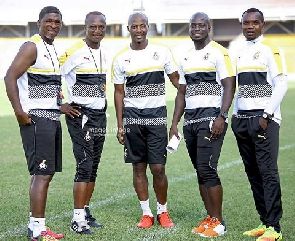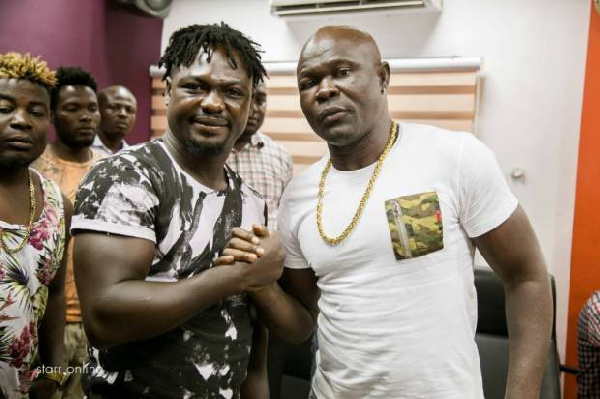In an honest assessment of Ghana’s chances of reaching the 2018 World Cup in Russia, the president of the Ghana Football Association(GFA), Kwesi Nyantakyi, admitted that “Our destiny is definitely not in our hands.”
The telling commentary followed an indifferent outing by the Black Stars against their Congolese (Brazzaville) counterparts in Kumasi, with the 1-1 draw virtually sealing Ghana’s fate as unlikely candidates for Russia 2018.
That was how players and technical bench almost certainly crafted Ghana’s obituary without a befitting tribute in the qualifying campaign in a chaotic outing that exposed the fragility and limitations of various departments of the Black Stars outfit.
It was a sorry sight watching the entire substitutes bench stand to issue instructions to their playing colleagues, with the subdued figure of technical head Kwasi Appiah desperately helpless as though without authority.
The spectacle would not be too surprising for an honest follower of the two tenures of coach Kwasi Appiah, but his posturing last Friday as the Stars laboured without a defined guide reinforced the opinions that cautioned against his re-engagement.
For, this was the man who was stripped of his powers by mere players when he led Ghana to the 2014 FIFA World Cup in Brazil. At the height of the anarchy under his watch, players openly rebelled and contemptuously defied his orders.
His appeal among the wider Ghanaian populace beyond the quarters of the Black Stars and the GFA appears to have been based mainly on his gentlemanly character, an affableness that is so absent in the nature of today’s dollar-earners in Ghana football.
The dirges being sung around Ghana’s World Cup qualifying campaign may still appear too soon for the die-hard, yet the reality of it lies in the multiple factors of technical competence/incompetence, a sudden and inexplicable dearth in squad, a strange and sudden lack of player quality, and management’s seemingly clueless response to the undignified unfolding story, among others.
No team have remained unbeatable in their entirelife time, and bad results are mainly attributable to tangible factors. Like the case of Manchester United of the post Alex Fergusson era, the failure to match the title-winning credentials of the past manager’s tenure was put at the doorstep of David Moyes.
Interestingly, Coach Kwasi Appiah’s predecessor, Avram Grant, suffered ridicule in the media more for his absenteeism rather than results. Indeed, he only missed the Nations Cup trophy in 2015 (his very first assignment) on penalties, and reached the semis of the same tournament (his very last assignment) this year.
The goodwill that Coach Appiah enjoys, particularly among a relatively inconsistent sports media, has somehow shielded him from the scrutiny and equal judgement that other coaches and public officials have endured over the years.
Aided by a few results such as the 5-0 trouncing of Ethiopia in a Nations Cup qualifier in Kumasi recently, Appiah has been spared the required inquest into his managerial decisions.
In fact, the victory over Ethiopia managed to paper over the unfortunate and embarrassing clash between skipper Asamoah Gyan and his deputy, Andre Dede Ayew, over the custody of the captain’s arm band. That feud between the pair may well be the first time a player has taken custody of the captain’s band in a competitive football match.
While he looked on aloof as his charges embarked on the chaos on the field, the appointing authority and the powerbrokers may have pictured the likely backlash from an unforgiving football public that still reminds the team of their moral failings at Brazil 2014.
Yet, even under those unsatisfying circumstances, nothing was more irking than the political twist instigated by Deputy Sports Minister, Pius Enam Hazide.
At a time when games of the Black Stars have been shuffled around the country in a bid to arouse a positive support base after the virtual national discontent with their Brazil 2014 extremities, Mr Hazide’s disingenuous attribution of what was wrong with the team to a political party/government could be put down to his inexperience and naivety.
What is the point in politicising the Black Stars’ performances/achievements? It is a subject worth returning to.









